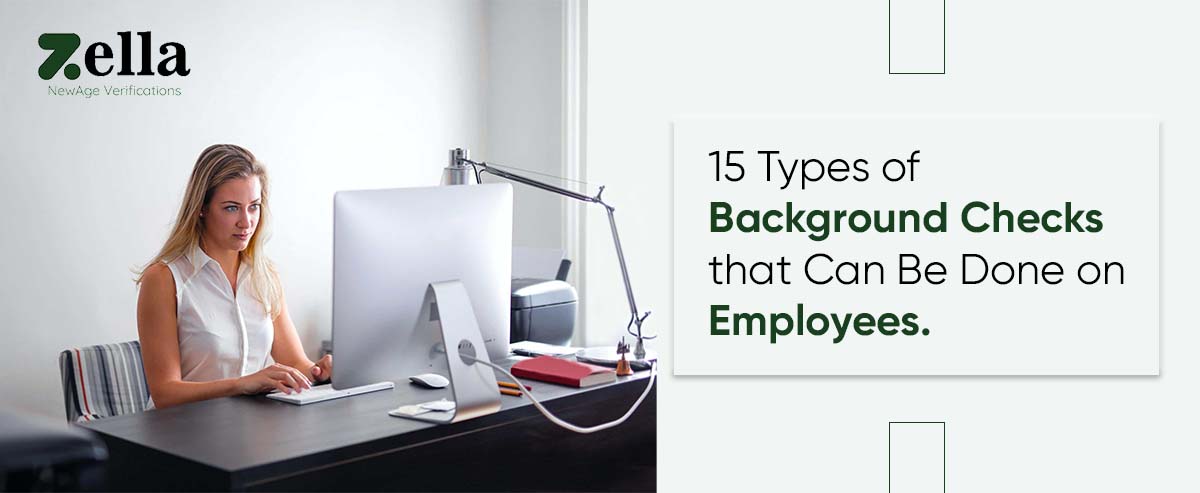
15 Types of Background Checks that Can Be Done on Employees
Background checks are still a very common part of the hiring process.
No matter what industry you’re in, you’ve probably noticed them before. They come with a set of questions and follow-up calls so that HR can verify the information given to them by the prospective employee.
This is an excellent way to ensure employees will be who they say they are, but it’s also an expensive part of the hiring process.
If you’re wondering if you should be doing another background check on an employee, here are 15 types of background checks that you could consider for your company or business.
1) Drug Screening
Drug screening tests employees for illegal substances. These tests are used both to evaluate job applicants and existing employees. In general, drug testing has become more common in recent years.
2) Criminal Records Check
This type of background check involves running criminal records through an automated database. Companies typically perform a criminal record check on prospective hires before hiring them.
3) Credit Report
A credit report includes a consumer’s financial history. An employer will obtain a copy of the report through a third-party lender or agency. Employers commonly run a credit report during the initial application process.
4) Employment Verification
Employment verification checks the identity of workers applying for jobs. Many employers hire temporary staff and contract workers, assuming they are legitimate and trustworthy.
5) Fingerprinting
A fingerprint test is used to establish employment eligibility. In fact, Federal Law requires all employers to fingerprint current as well as previous employees.
6) National Sex Offender Registry Search
A national sex offender registry search confirms that someone does not have a sexually violent offense conviction.
7) Public Record Search
A public record search reveals a person’s previous addresses, marital status, date of birth, Social Security number, and more.
8) References
References verify an applicant’s character and credibility. Typically, references are requested from former co-workers, supervisors, and others who are familiar with the individual. Reference checks can be performed at any stage of the hiring process.
9) Substance Abuse History
Substance abuse histories reveal whether a worker uses drugs or alcohol. Tests for marijuana, cocaine, opiates, amphetamines, barbiturates, and phencyclidine (PCP) are commonly conducted on potential hires.
10) Any Other Pre-employment Checks
Job seekers can seek pre-employment screenings that do not fall within the above categories. Such screening requirements include medical examinations, polygraph examinations, psychological evaluations, personality assessments, and interviews.
11) Post-Employment Background Checks
When it comes time to fire an employee, companies often conduct post-employment screenings. For example, many companies review their terminated workers’ personal information, like tax returns and bankruptcy filings, which may provide clues about a person’s reputation.
12) Subpoena
The legal term for the act of requesting documents by subpoena. Most states allow employers to request copies of a person’s past income tax returns. To protect against fraud, some employers ask for additional documentation when issuing subpoenas.
13) Bankruptcy Filings
You should request this information if you suspect your employee has filed for bankruptcy protection. Some of these people file multiple times for job loss, divorce, illness, or other reasons.
14) Civil Litigation
Lawyers frequently use background checks to discover if a client has been involved in civil litigation. This type of background check is also known as a “civil suit search.” It can include lawsuits about family violence, sexual harassment, domestic abuse, drug charges, DUI/DWI, and even traffic tickets.
15) DMV Search
All states have departments that maintain motor vehicle databases containing previous driver history reports. Many employment applications ask for current and prior addresses, phone numbers, and license plate numbers.
Final words
Background checks can be very helpful in ensuring that you have the best team of employees possible.
While these checks don’t guarantee that you won’t have any issues with your employees, they can help lower the probability of there being problems, to begin with. By using BGV services, you and your colleagues can increase the likelihood that your new hires are the best choice for your business.

Leave a Comment